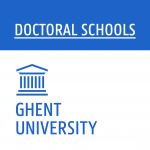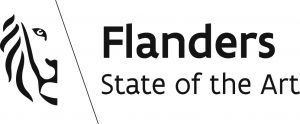
Ghent, Belgium, 10-12 September 2025
The thirteenth edition of the Mnemonics summer school will be hosted by the Flemish Memory Studies Network (a collaboration of memory scholars at Ghent University and KU Leuven) and will be held in person in Ghent, Belgium, from Wednesday 10 September 2025 to Friday 12 September 2025.
The annual Mnemonics summer school brings together junior and senior scholars in the interdisciplinary field of memory studies, affording PhD students from around the world the opportunity to receive extensive feedback on their ongoing projects and to catch up with methodological and theoretical debates in memory studies. Each edition features three keynotes and 24 PhD student presentations. Each PhD student will be assigned a senior respondent from a partner institution who will provide an in-depth commentary on their paper. Mnemonics is a unique platform for learning, mentoring, and networking specifically designed to meet the needs and interests of the next generation of memory scholars.
Keynote Speakers
- Carlos Fonseca (Cambridge University)
- Sara Dybris McQuaid (Aarhus University)
- Hanna Meretoja (University of Turku)
Participating Mnemonics Partners
- Tea Sindbæk Andersen (University of Copenhagen)
- Guido Bartolini (Ghent University)
- Stefano Bellin (Ghent University)
- Stef Craps (Ghent University)
- Rick Crownshaw (Goldsmiths, University of London)
- Astrid Erll (Goethe University Frankfurt)
- Victoria Fareld (Stockholm University)
- Wulf Kansteiner (Aarhus University)
- Brett Ashley Kaplan (University of Illinois Urbana-Champaign)
- Silvana Mandolessi (KU Leuven)
- David Mwambari (KU Leuven)
- Jessica Ortner Nielsen (University of Southern Denmark)
- Ann Rigney (Utrecht University)
- Michael Rothberg (UCLA)
- Hanna Teichler (Goethe University Frankfurt)
- Barbara Törnquist-Plewa (Lund University)
- Pieter Vermeulen (KU Leuven)
- Eva Willems (Ghent University)
Theme
The 2025 edition of Mnemonics will delve into the intricate relationship between memory and responsibility.
Memory is not a static record of the past but a dynamic process, constantly reshaped by present-day concerns, power structures, and competing interests. How we remember is determined as much by contemporary realities as by historical events. Responsibility, on the other hand, signifies the obligation to answer for actions, inactions, decisions, and narratives—whether as individuals, groups, or societies. Scholars such as Paul Ricoeur (2004), Jeffrey Blustein (2008), and James Booth (2020) have underscored the profound interconnections between memory and responsibility, which underpin much work in memory studies.
Since the late 1900s, the notion of a “duty to remember” has increasingly shaped public relations to the past. Originally tied to the commemoration of the First World War in Western Europe (“lest we forget”), the moral imperative to bear witness and prevent future horrors (“never again”) gained widespread prominence in the second half of the twentieth century in response to the Holocaust (Levy and Sznaider 2006) and political transitions in Latin America (Jelin 2003). Over time, its scope has broadened significantly. Memory activists have worked to confront the enduring legacies of Western colonialism and imperialism, challenging narratives that obscure or erase these histories. Feminist and gender studies scholars have exposed how dominant historical accounts often reinforce patriarchal and heteronormative biases, advocating for more inclusive and critical approaches to remembrance. The principle of intergenerational responsibility—accountability for events beyond one’s direct involvement—has informed efforts to address histories of genocide, dictatorship, war, and other collective traumas. More recently, the growing focus on climate change and environmental breakdown has further expanded these frameworks, emphasizing humanity’s interconnectedness with other species and ecosystems through the lens of Anthropocene memory.
At the same time, responsibility remains a complex and often contested concept within memory studies. Memory narratives and dominant historical discourses are frequently constructed to evade responsibility, redirecting blame away from the mnemonic community. This tendency is evident in collective memories of the Second World War, where many nations have embraced uncritical, self-exonerating narratives that obscure their shared responsibility for wartime atrocities (Lebow, Kansteiner, and Fogu 2006; Mihai 2020). Similar challenges have emerged in recent efforts to confront the legacies of colonialism in countries such as Belgium, Germany, and the Netherlands (Goddeeris 2020; Melber 2024). Cultural production can also contribute to these dynamics, fostering forms of storytelling that limit ethical engagement and constrain narrative imagination (Meretoja 2018). Even sincere attempts to assume responsibility risk producing exclusionary memory regimes or prematurely closing the door on historical reckoning.
For the future of memory studies, cultivating memory practices that embrace structural responsibility—rooted in the interconnectedness of human beings—remains vital (Sanders 2002; Young 2011). At the same time, such practices must engage with nuanced understandings of agency, shaped by the memory of complicity and implication (Sanyal 2015; Rothberg 2019).
The 2025 Mnemonics summer school invites PhD students to critically engage with these questions through interdisciplinary dialogue. Participants will reflect on key challenges and opportunities in bridging memory and responsibility, addressing topics such as the ethical demands of reckoning with the past, the risks of evasion or distortion, and the potential for memory to foster solidarity and justice. Through case studies and theoretical explorations, the summer school will illuminate the tensions and transformative possibilities within the interplay of memory and responsibility.
Contributions may address a wide range of topics, such as:
- The challenges and limits of taking responsibility for historical injustices
- (Ir)responsible memory practices in relation to genocides, colonialism, dictatorships, and wars
- The role of memory in addressing climate change and ecological responsibility
- Remembering gender-based violence in responsible ways
- How literature and art negotiate or evade responsibility for the past
- Case studies of effective or problematic attempts to take responsibility for the past
- The interplay between individual and collective responsibility
- Ethical and political strategies for fostering responsible memory cultures
- How responsibility intersects with enduring structures of power and inequality
- The impact of responsibility on key concepts in memory studies
- The ethical dilemmas of selective memory and forgetting
- The interpretative or imaginative processes involved in reckoning with the past
- The relationship between responsibility and memories of complicity and implication
- Collective memory as a means of political and ethical engagement
Key questions for exploration include:
- What does it mean to take responsibility for the past, and what does this entail?
- What risks and opportunities emerge when addressing historical wrongs?
- When, if ever, does assuming mnemonic responsibility involve a measure of forgetting?
- How can responsibility for the past be translated into action, reparations, or educational initiatives?
- What kinds of narratives support ethical memory practices, and how are they constructed?
- How can memory grapple with forms of harm that are diffuse, incremental, or invisible?
- How can memory practices rooted in responsibility help address urgent contemporary and future challenges?
- To what extent are memory cultures grounded in responsibility affected by polarized and digital societies?
Format
The summer school will include keynote lectures, general discussions, and professional development sessions. The main emphasis, however, is on the presentation of PhD work in progress in the form of panels of three students who each give a 15-minute talk that is based on their ongoing research while also relevant to the theme of this year’s summer school. In order to foster feedback and discussion, each panel will include an extensive response and a Q&A session. The summer school will be bookended by a special event exploring memory and responsibility in relation to contemporary conflicts and a decolonial walking tour of Ghent.
Practical Information
Local Organizers
Mnemonics 2025 is hosted by the Flemish Memory Studies Network, a collaboration of memory scholars at Ghent University and KU Leuven. The organizing team consists of Prof. Stef Craps, Dr Guido Bartolini, Dr Stefano Bellin, Dr Eva Willems, and Eva Van Hoey (Ghent University) alongside Prof. Silvana Mandolessi, Prof. Pieter Vermeulen, and Nina Soudan (KU Leuven).
Where?
The summer school will be held at Het Rustpunt (Burgstraat 116 or Prinsenhof 39, 9000 Ghent), a residential conference centre housed in a 17th-century Carmelite monastery. This tranquil, green oasis is located in the heart of the city. Ghent is easily accessible by road, rail, and air, with international trains arriving at Brussels-South railway station (a 30-minute train ride from Ghent) and Brussels airport (BRU) just one hour away by train.
When?
The summer school will officially commence on the morning of Wednesday 10 September 2025 and conclude on the afternoon of Friday 12 September 2025. An optional public event, followed by a reception, is scheduled for the evening of Tuesday 9 September 2025.
Fees
The participation fee is €250 and includes tuition, three nights of shared accommodation at Het Rustpunt (Tuesday 9 September 2025 – Friday 12 September 2025), breakfasts, lunches, coffee breaks, one dinner, and one reception. Travel costs to Ghent are not covered. Participants who wish to upgrade from a shared twin room to a private single room (subject to availability) may do so for a fee of €350. Those who do not require overnight accommodation can register for €100.
PhD students from institutions in low- and middle-income countries are encouraged to apply. To facilitate participation, the Flemish Memory Studies Network offers a limited amount of financial support to select attendees, based on merit and need. If you wish to be considered for a fee waiver or travel bursary, please indicate this in your application, provide a motivation, and disclose any other sources of funding available to you.
Applications
Applications are open to all PhD students with an interest in memory studies who are actively enrolled at the time of the summer school. Half of the 24 available spots are reserved for students affiliated with Mnemonics partner institutions. Attendance is in-person only.
To apply, please submit the following as a single PDF document to MnemonicsGhent [at] gmail [dot] com by 1 April 2025:
- A 300-word abstract for a 15-minute paper (including the title, your name, and your institutional affiliation)
- A brief description of your PhD research project (one paragraph)
- A short CV (maximum one page)
Important Dates
- Application deadline: 1 April 2025
- Notification of acceptance: 15 May 2025
- Deadline for paper submission: 20 August 2025
Questions?
Please email MnemonicsGhent [at] gmail [dot] com.
Relevant Links
- Mnemonics website: https://www.mnemonics.ugent.be/
- Mnemonics on Facebook: http://www.facebook.com/groups/mnemonics.network/
- Mnemonics on Bluesky: @mnemonics.bsky.social
References
- Ackerly, Brooke A. Just Responsibility: A Human Rights Theory of Global Justice. Oxford University Press, 2018.
- Bartolini, Guido, and Joseph Ford, eds. Mediating Historical Responsibility: Memories of “Difficult Pasts” in European Cultures. De Gruyter, 2024.
- Booth, James W. Memory, Historic Injustice, and Responsibility. Routledge, 2020.
- Blustein, Jeffrey. The Moral Demands of Memory. Cambridge University Press, 2008.
- Fonseca, Carlos. The Literature of Catastrophe: Nature, Disaster and Revolution in Latin America. Bloomsbury, 2020.
- Fricker, Miranda. Epistemic Injustice: Power and the Ethics of Knowledge. Oxford University Press, 2007.
- Goddeeris, Idesbald. “Mapping the Colonial Past in the Public Space: A Comparison between Belgium and the Netherlands.” BMGN—Low Countries Historical Review1 (2020): 70-94.
- Jelin, Elizabeth. State Repression and the Labors of Memory. University of Minnesota Press, 2003.
- Jones, Hannah. Violent Ignorance: Confronting Racism and Migration Control. Zed Books, 2021.
- Lebow, Richard, Wulf Kansteiner, and Claudio Fogu, eds. The Politics of Memory in Postwar Europe. Duke University Press, 2006.
- Levy, Daniel, and Natan Sznaider. The Holocaust and Memory in the Global Age. Trans. Assenka Oksiloff. Temple University Press, 2006.
- McQuaid, Sara Dybris, and Sarah Gensburger, eds. Administrations of Memory: Transcending the Nation and Bringing Back the State in Memory Studies. Springer, 2022.
- Melber, Henning. The Long Shadow of German Colonialism: Amnesia, Denialism and Revisionism. C. Hurst, 2024.
- Meretoja, Hanna. The Ethics of Storytelling: Narrative Hermeneutics, History and the Possible. Oxford University Press, 2018.
- Mihai, Mihaela. Political Memory and the Aesthetics of Care: The Art of Complicity and Resistance. Stanford University Press, 2022.
- Niemi, Minna Johanna. Complicity and Responsibility in Contemporary African Writing: The Postcolony Revisited. Routledge, 2021.
- Ricoeur, Paul. Memory, History, Forgetting. Trans. Kathleen Blamey and David Pellauer. University of Chicago Press, 2004.
- Robbins, Bruce. The Beneficiary. Duke University Press, 2017.
- Rothberg, Michael. The Implicated Subject: Beyond Victims and Perpetrators. Stanford University Press, 2019.
- Sanders, Mark. Complicities: The Intellectual and Apartheid. Duke University Press, 2002.
- Sanyal, Debarati. Memory and Complicity: Migrations of Holocaust Remembrance. Fordham University Press, 2015.
- Shotwell, Alexis. Against Purity: Living Ethically in Compromised Times. University of Minnesota Press, 2016.
- Táíwò, Olúfẹmi O. Reconsidering Reparations. Oxford University Press, 2022.
- Vázquez-Arroyo, Antonio Y. Political Responsibility: Responding to the Predicaments of Power. Columbia University Press, 2016.
- Young, Iris Marion. Responsibility for Justice. Oxford University Press, 2011.

Header image: Freddy Tsimba, Centres fermés, rêves ouverts (Tervuren, 2016); Footer image: Graslei, Ghent
 |
 |
 |
